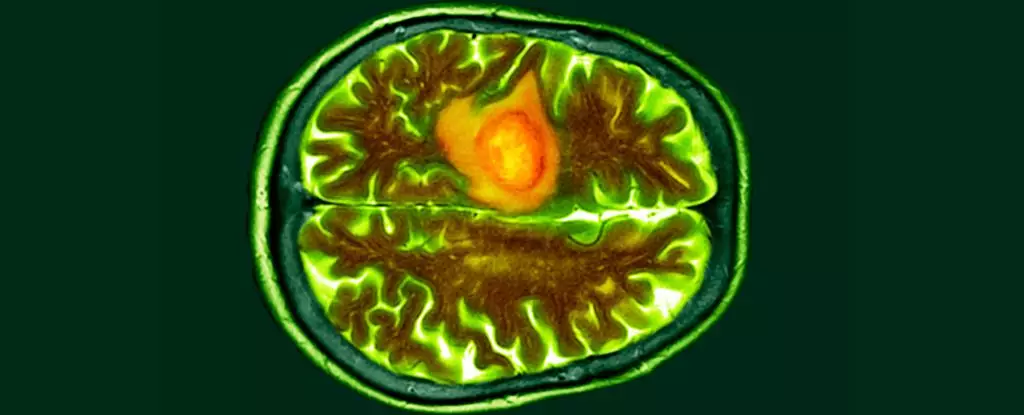Medical science has taken a significant leap forward with the development of a groundbreaking method for detecting brain cancer – liquid biopsy. This innovative technique requires only a small blood sample of 100 microliters and can identify biomarkers associated with glioblastoma, the most aggressive form of brain tumor, in just one hour. Led by a team of scientists from the University of Notre Dame in the US, this new approach is touted to surpass all existing tests and markers for glioblastoma, showcasing excellent accuracy and efficiency.
Unlike traditional surgical biopsies that are invasive and time-consuming, liquid biopsy relies on detecting mutated blood biomarkers called epidermal growth factor receptors (EGFRs) that are commonly overexpressed in certain cancers like glioblastoma. These biomarkers are encapsulated within extracellular vesicles, which are small packages containing proteins, lipids, and genetic material from the originating cells. Biomolecular engineer Hsueh-Chia Chang explains, “Extracellular vesicles or exosomes are unique nanoparticles secreted by cells…they have a weak charge, and our technology leverages these features for detection.”
The Role of the Biochip
Central to the liquid biopsy method is a specialized biochip that costs less than $2 and contains a minuscule sensor the size of a ballpoint pen tip. Immersed in untreated blood plasma, the chip’s interface houses antibodies attracted to exosomes carrying mutated EGFRs. When these biomarkers adhere to the biochip, a voltage shift occurs in the plasma solution, indicating a high negative charge associated with potential cancer. In clinical trials involving blood samples from both glioblastoma patients and healthy individuals, the biochip demonstrated remarkable accuracy and reproducibility in detecting cancer biomarkers.
The liquid biopsy’s ability to detect exosome concentrations as low as 0.01 percent opens up exciting possibilities for cancer research, biomarker identification, and disease monitoring beyond brain cancer. However, there are challenges to address, such as the broad association of mutated EGFRs with other diseases like colorectal cancer. This raises concerns about the test’s specificity in diagnosing glioblastoma or pinpointing the cancer’s type, location, and stage of progression.
To enhance the test’s precision, the research team emphasizes the need to analyze larger cohorts of glioblastoma patients to delineate distinct blood biomarkers. By scaling up the diagnostic platform for extensive testing of untreated plasma from diverse cancer patients, the scientists aim to establish unique profiles for various cancers at varying stages. This strategic approach is crucial for refining the liquid biopsy method and tailoring it to address the complexities of cancer diagnosis beyond glioblastoma.
The development of liquid biopsy as a non-invasive and rapid diagnostic tool for brain cancer represents a significant advancement in the field of oncology. While the method shows promise in detecting cancer biomarkers with high accuracy, further research and refinement are necessary to overcome existing limitations and ensure its applicability across a broad spectrum of cancer types. As scientists continue to unravel the intricacies of liquid biopsy, the future of cancer detection appears brighter and more accessible than ever before.


Leave a Reply